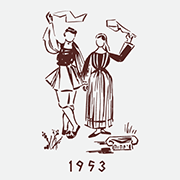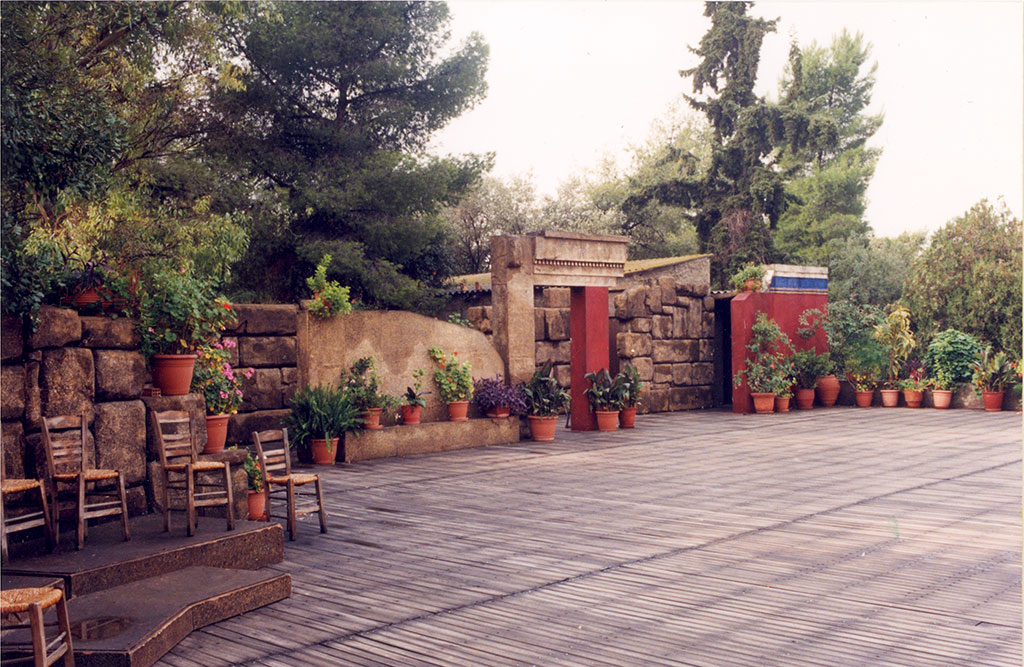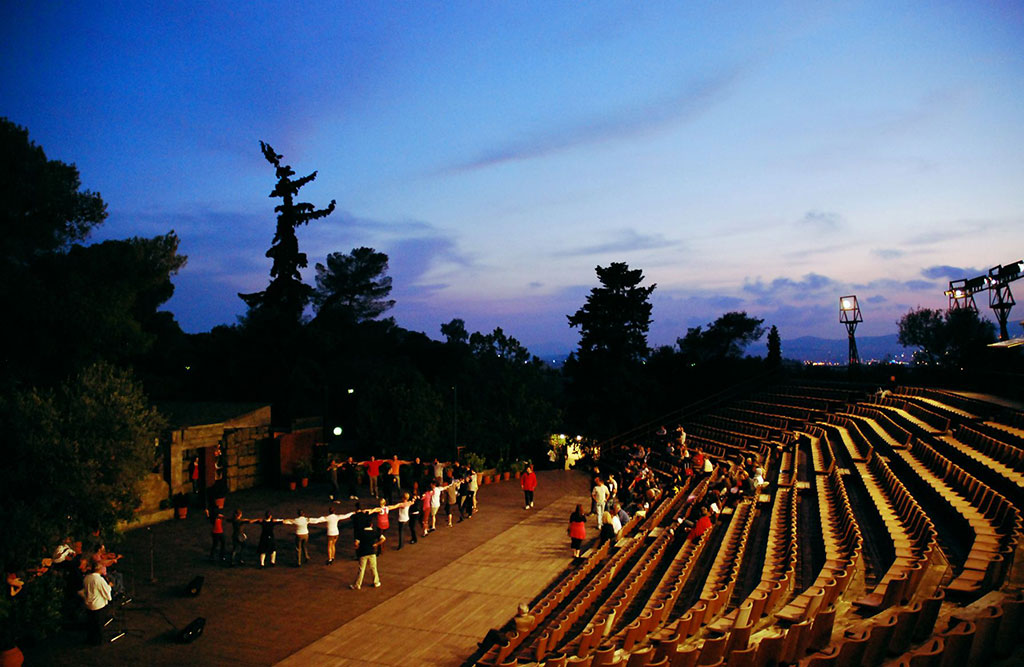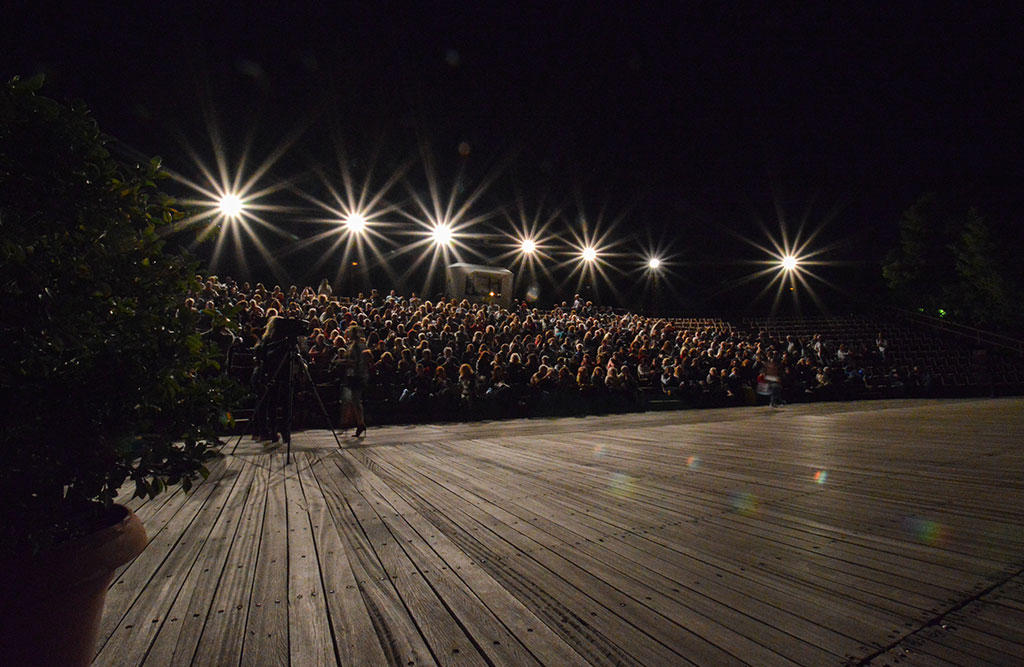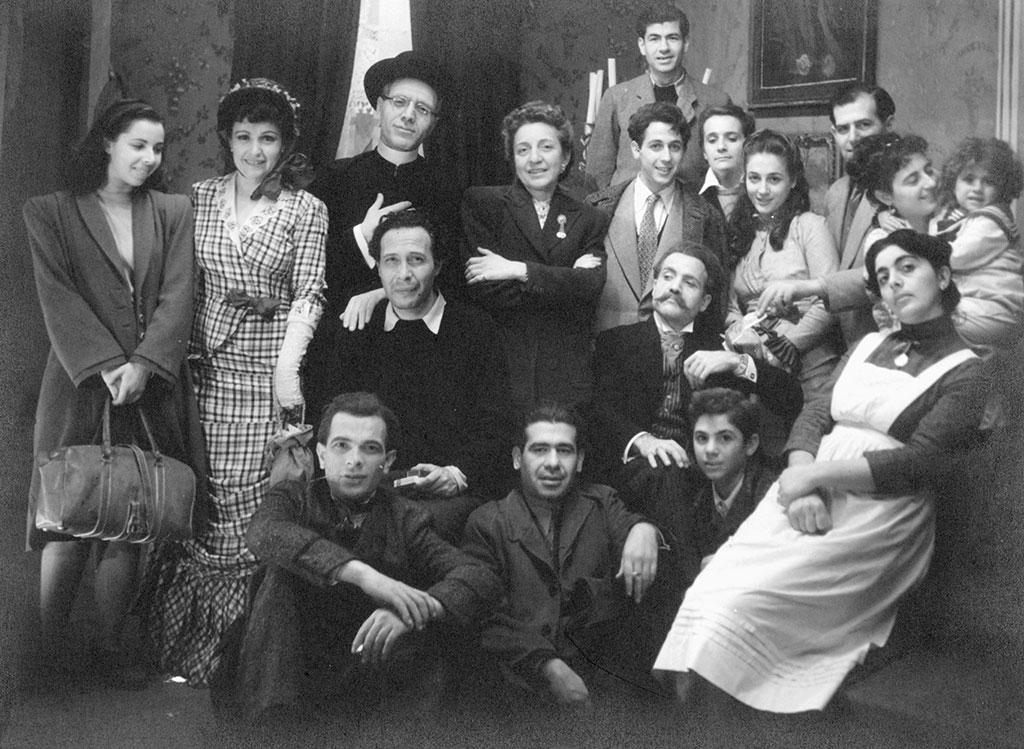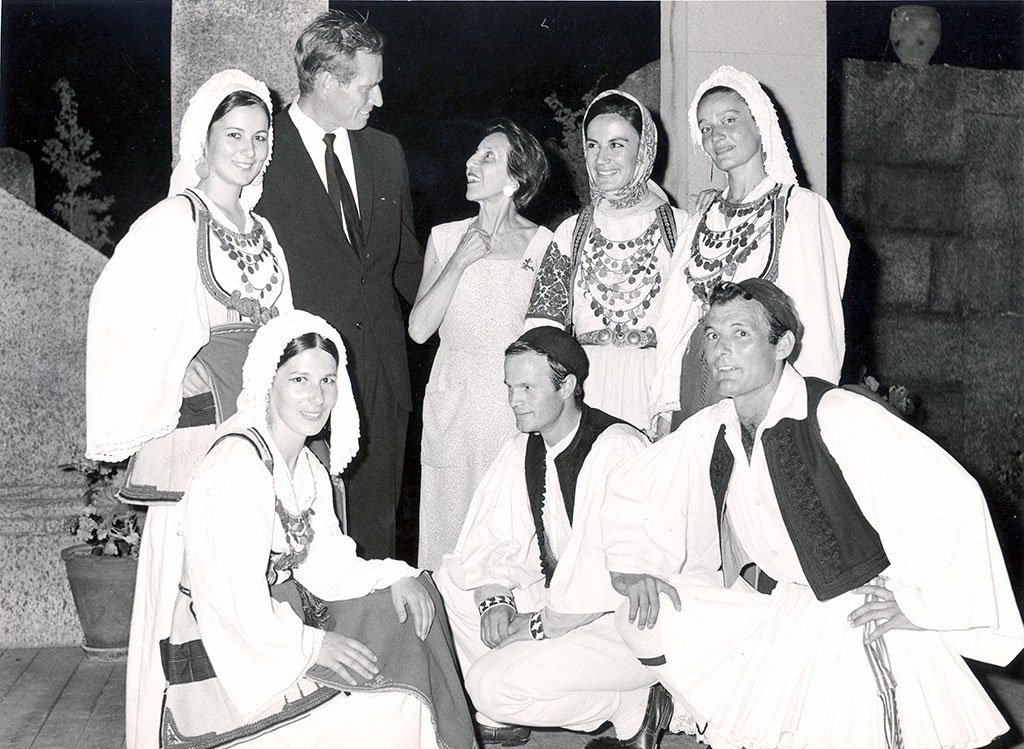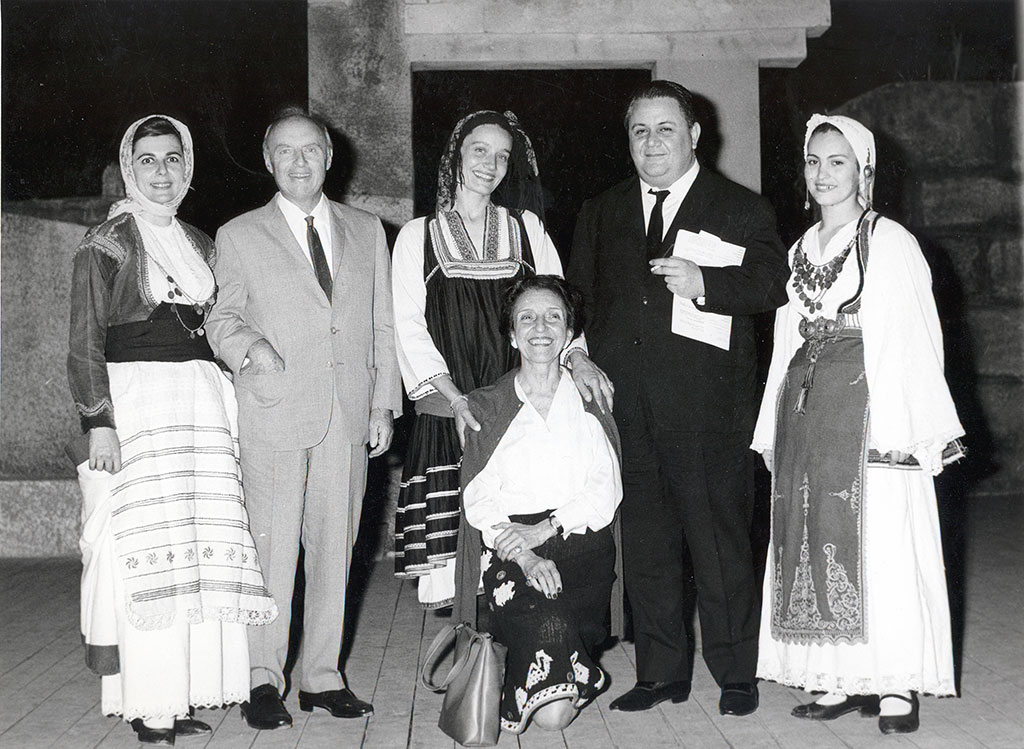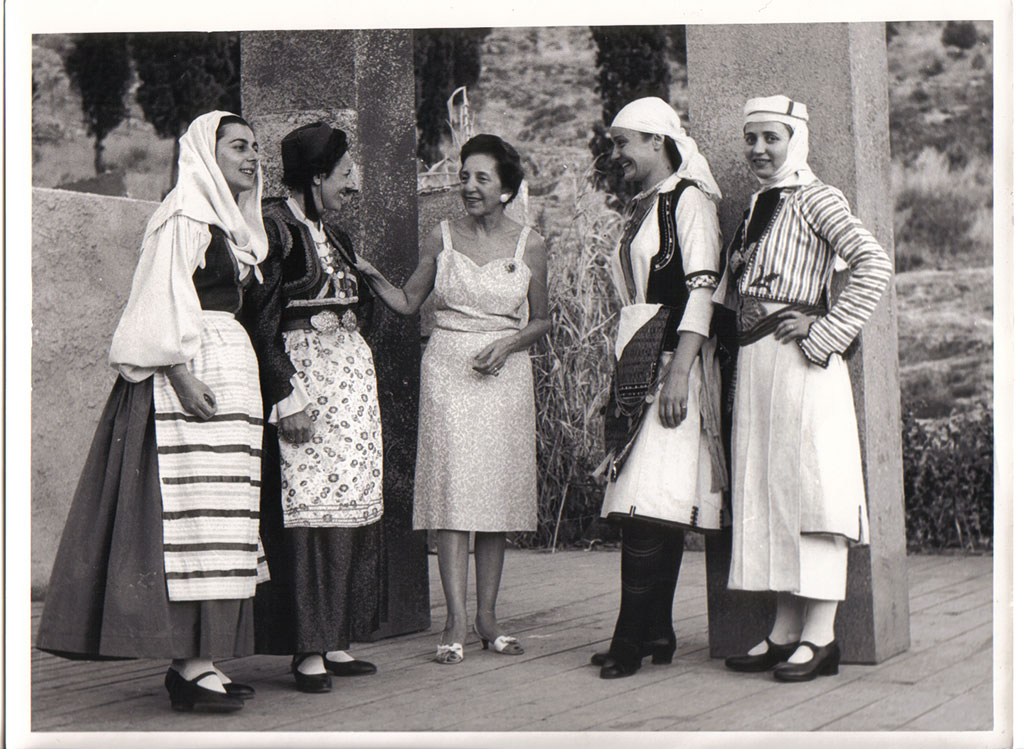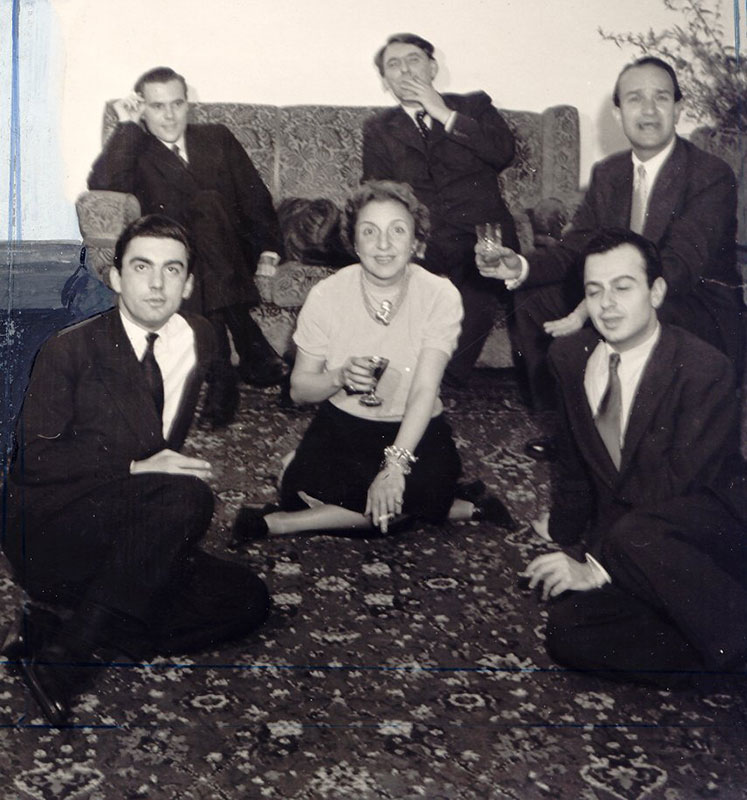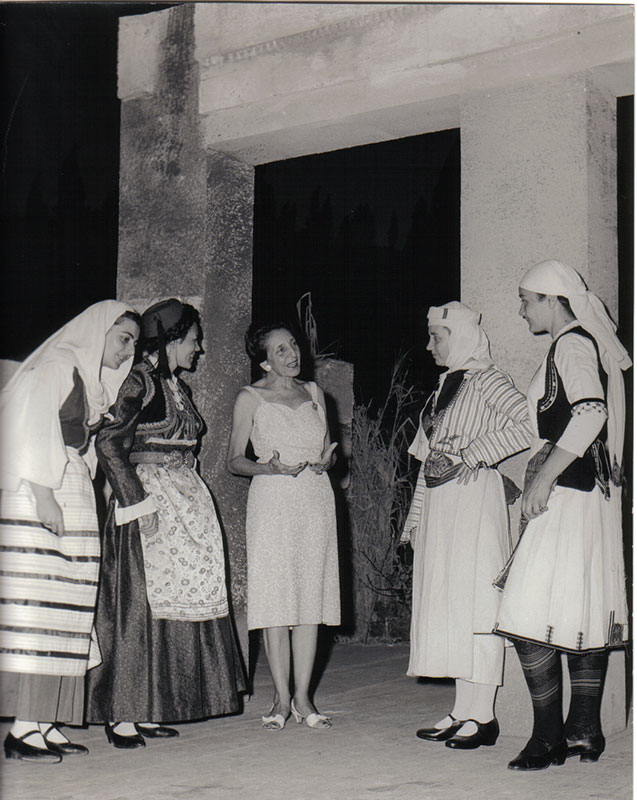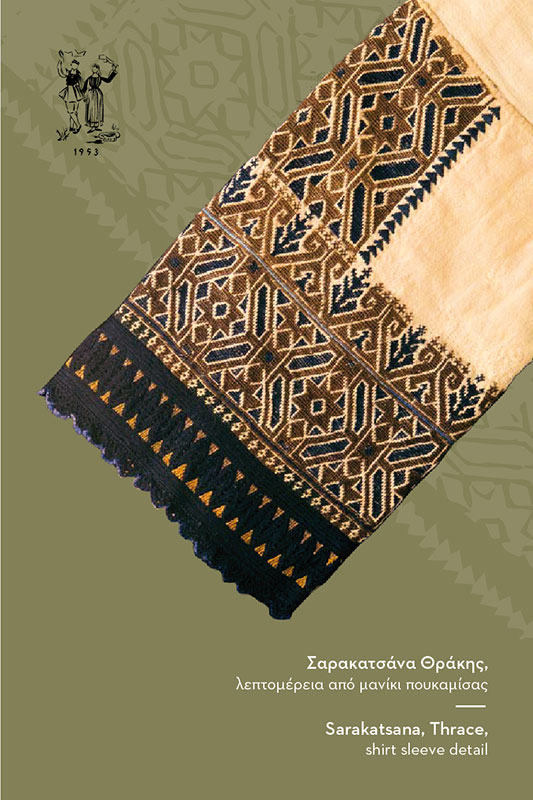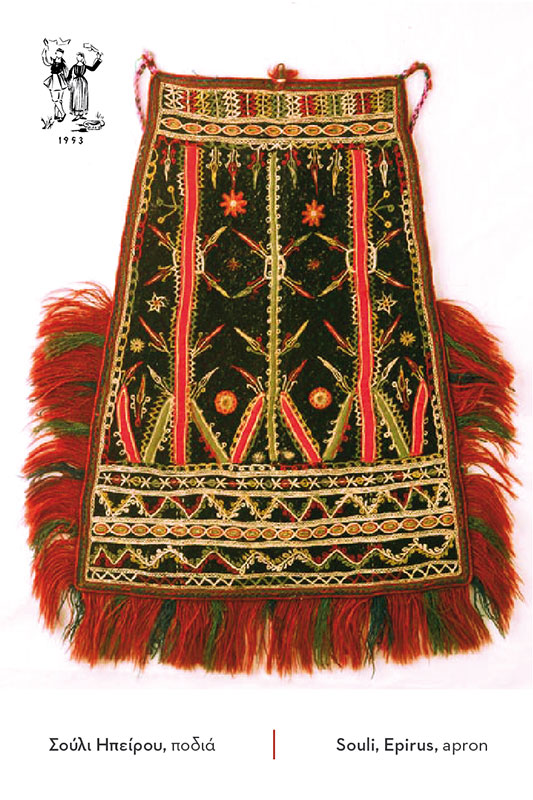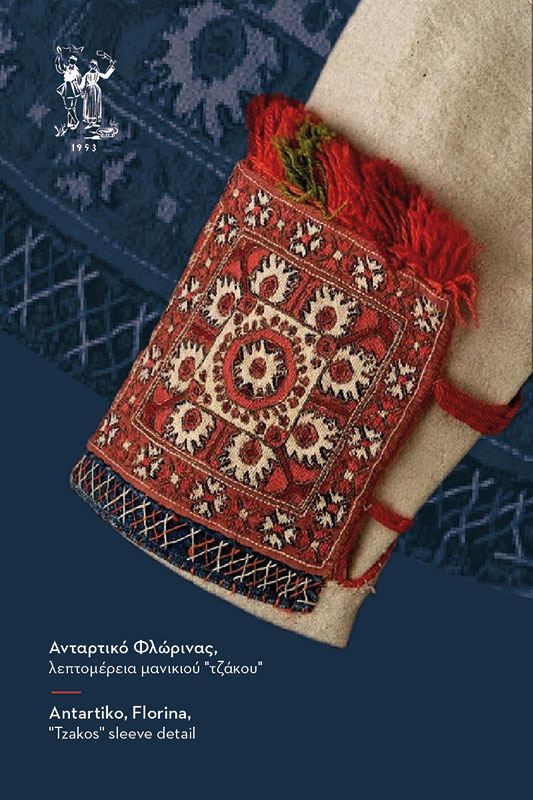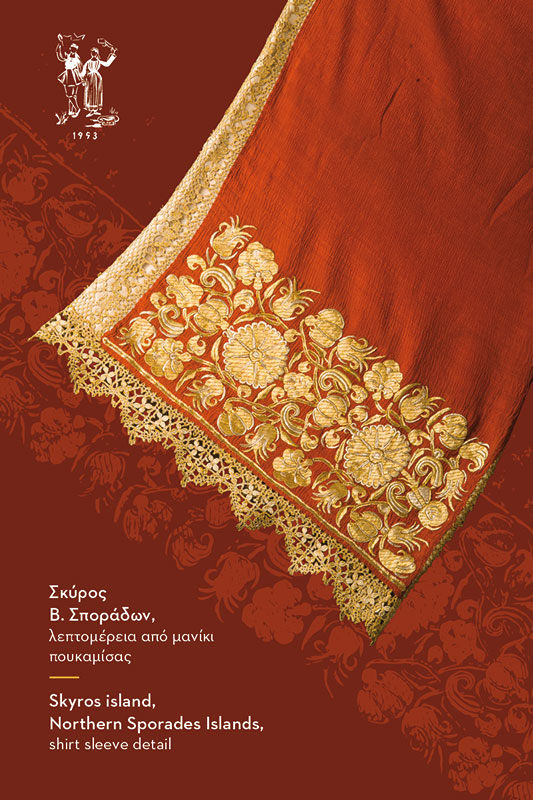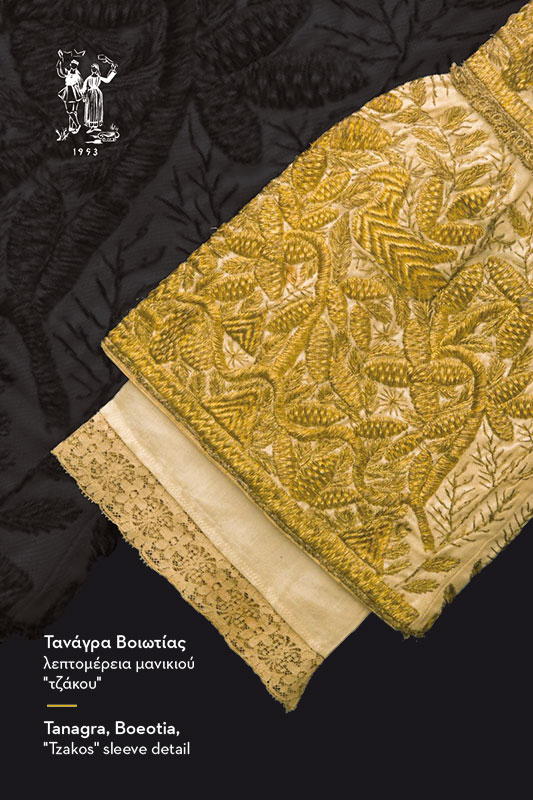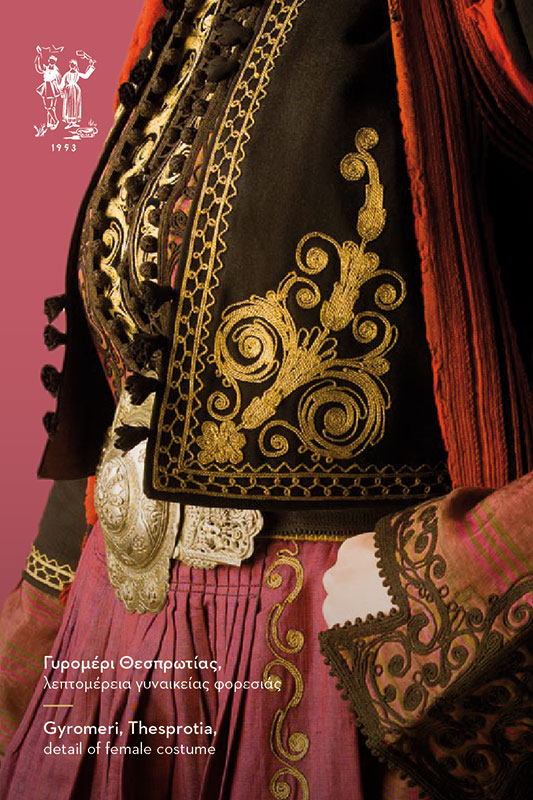GREEK DANCES THEATRE
“DORA STRATOU”
THE LIVING MUSEUM OF GREEK DANCE, SINCE 1953
A public-benefit institution subsidized by the Ministry of Culture and the National Tourism Organization
under the auspices of the Municipality of Athens.
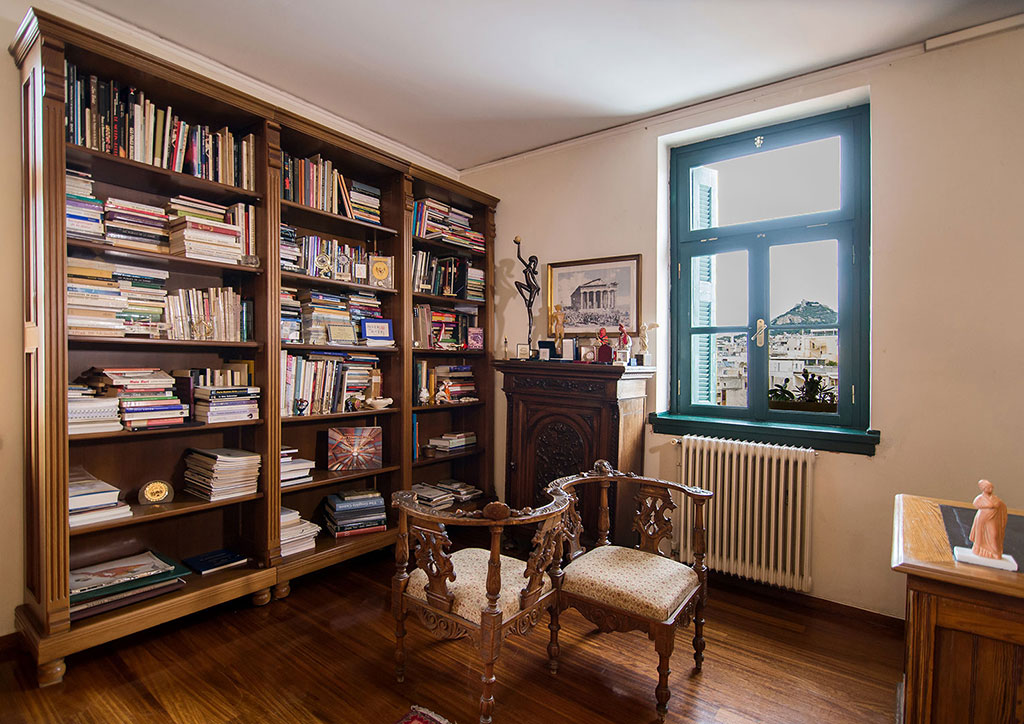
- Daily performances in the its 800-seat garden theatre, located on Philopappou Hill, opposite the Acropolis
- A company of 75 dancers, musicians and folk singers
- A collection of over 2,000 village-made costumes, with jewels and other works of folk art worn on stage.
- School providing courses, lectures and workshops on Greek dance, folk embroidery and traditional culture.
- Programs for elementary schools.
- Field research programs in Dance Ethnography, Dance History, or Sociology.
- Study group, courses and workshops on Ancient Greek dance.
- Archives of dance books, articles, field recordings, photographs, videos and films.
- Publications: over 40 LP records, 15 CDs, 15 cassettes, 7 videocassettes, 30 books on dance in Greek, English and other languages, 8 CD-ROMs, 5 DVDs.
- Costume copies and accessories made for folk dance ensembles.
- Organizer of the annual events: World Congress on Dance Research, Anapali Festival, Emmelia Festival.
- Operation of the Dance Pandect portal: www.dance-pandect.gr
- Close cooperation with the International Dance Council CID, the UNESCO official summit organization for all forms of dance in all countries of the world: www.cid-portal.org
Dora Stratou

Dora Stratou was born in 1903 in Athens. Her mother, Maria Koromila, was the daughter of the playwright (“The Lover of the Shepherdess” and “Maroula’s Fate”) and journalist Dimitrios Koromilas, from an old Athenian family. Her father was Nikolaos Stratos, a lawyer from the village Loutro in the Etoloakarnania region. She grew up in the upper class urban environment of Athens at the beginning of the century.
She went Palace balls, studied foreign languages and singing, and befriended the offsprings of powerful families. Her piano teacher was Dimitri Mitropoulos, later famous conductor of the New York Philharmonic. She followed theatrical performances and concerts, a passion she maintained throughout her life.
Nikolaos Stratos, as member of Parliament, was Minister of the Interior in the cabinet of Dimitrios Rallis and subsequently joined the Liberal Party of Eleftherios Venizelos, becoming Minister of the Navy. In 1913, he crossed over to the royalist party and served as Prime Minister for a few days after the Asia Minor Disaster of 1922. For this he was sentenced for high treason and executed.
Her mother, together with Dora and her younger brother Andreas, left Greece. After a life of wealth, they found themselves suddenly on the threshold of poverty when their property was confiscated. Young Dora was traumatized by the execution of her father and the subsequent public humiliation. She spent the next ten years abroad – Berlin, Paris, New York – with her mother.
They returned to Greece in 1932. Her brother Andreas had studied law and was elected as a member of Parliament. Dora began to mix with the new crop of intellectuals of the inter-war period. She was twice married and divorced. During the Occupation (of World War II) she took an active part in the philanthropic works of the archbishopric. She assisted the later famous director Karolos Kuhn in the administration of his “Arts Theater”.
In 1952 she saw by chance the 100-member national folk ensemble of Yugoslavia which was touring Europe featuring folk dances, music and costumes of its country. It was something of a revelation for the Athenian public. At that time in Greece there were very few performing groups, among them the pioneering one of the Lyceum of Greek Women, performing only two or three times a year, dressed in the urban Amalia costume. Their primary aim was to satisfy their own dancers, young Athenian girls of good families.
George Megas, university professor of folklore, suggested the establishment of a national ensemble in Greece. Dora Stratou then asked Sophocles Venizelos, vice-president of the government, to approve financial assistance. The idea was to establish permanent professional ensemble capable of daily performances and tours abroad. It would have a large repertoire, a rich wardrobe from many Greek regions, a program designed to attract audiences. And so, the “Greek Dances – Dora Stratou” society was created.
She was befriended and had helped many upcoming artists and intellectuals – now she could benefit from their advice and assistance. To mention but a few: painter Spiros Vasileiou, composer Manos Hatzidakis, painter Yannis Tsarouhis, musicologist Foivos Anorgheianakis, musicologist Simon Karas, painter Giannis Moralis, poet Odisseas Elitis, folklorist Nestoras Matsas, writer Alekos Lidorikis, actor Dimitris Horn, folklrist Dimitris Loukatos, costume folklorist Angeliki Hatzimihali, pianist Gina Bachauer.
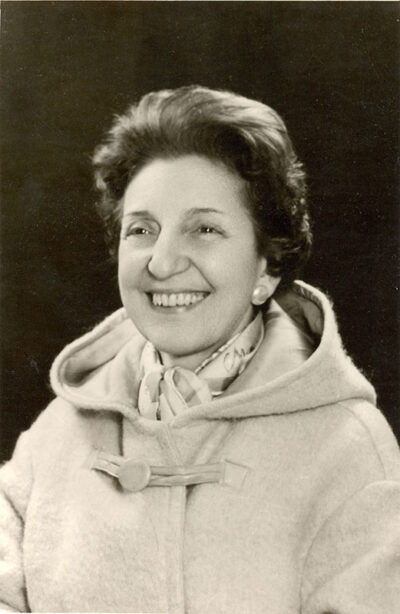
At the age of 50, she began this exhausting task with a passion. The first costumes were made by painter Yannis Tsarouhis, who also painted embroidery designs on them by hand. She toured villages to collect dances, songs, costumes, and folk jewelry, thus amassing the biggest collection in Greece. She selected the best dancers and instrumentalists to staff the ensemble. They gave successful performances in 21 countries.
In 1963, Constantine Karamanlis, ordered the construction of a special theater for the ensemble on the hillside of Filopappou. In 1967, during the military regime, Dora Stratou was arrested for hiding the fugitive newspaper publisher Christos Lambrakis in her home. Melina Mercouri created an uproar abroad and succeeded in having Dora Stratou released. In the same year Dora Stratou was awarded the most prestigious international distinction, the World Theater Award, as well as the Academy of Athens Award and a Ford Foundation grant.
She authored three books “A Tradition, an Adventure”, “Greek Dances, a Living Link to the Antiquity”, and “Traditional Greek Dances”. She issued one of the largest series of folk music in the world: 50 records.
In 1983 she retired due to ill health. She passed away in January 1988.
Alkis Raftis

Alkis Raftis was born in Athens. His family lives there since 1860, his grandfather and great grandfather were bakers in Plaka, the old town under the Acropolis. Both his parents and other members of his family played leading roles in the Resistance during the Nazi occupation.
He speaks 6 languages and holds degrees from 4 universities (Engineering, Sociology, Political Sociology and Management) in Athens and in Paris. After being a senior executive in American multinational corporations, he served as professor at universities: Patras School of Engineering, Patras School of Education, Paris-Dauphine and Paris-Sorbonne. He has given lectures in another 20 universities. He served as Vice-Governor of the ETBA national investment bank, and finally decided to concentrate on dance.
He carried out ethnographic research on traditional dancing in villages, historical research on Greek dance in Antiquity and Byzantium, as well as research on dance in world art and poetry. Prof. Raftis is considered the leading authority on dance in Greece, as well as on dancers around 1900 such as Isadora Duncan and La Belle Otero. He has researched the history of dance in the Eastern Mediterranean before 1900. His Orchesis Portal is an important tool for dance historians.
He has authored more than 20 books on dance, culture and management, and more than 100 articles. He has edited another 30 books, 11 CD-ROM volumes, 6 CDs, 2 DVDs and a bi-monthly review with over 110 issues.
Dr. Raftis is currently president of the International Dance Council CID at UNESCO, Paris. Since 1987 he is president of the national Dora Stratou Dance Theatre and Company in Athens.
Personal website: http://www.alkisraftis.orchesis-portal.org/
Officers
Executives
- Alkis Raftis
- Angeliki Christofilopoulou
- Stergios Theocharides
- Adamantia Aggeli
- Marina Christofaki
- Stamatis Theocharides
- Eva Roditou
- Minos Korovesis
- Athanasios Kalantzis
Close Associates
- Maria Kritsioti
- Dimitra Papoutsopoulou
- Anna Lazou
- Lambrini Raikou
- Anastasia Anastasopoulou
- Katerina Stavrou
Distinctions
~ 1967 First World Theater Award
~ 1974 Athens Academy Award
~ 1975 Athens Rotary Club Silver Medal
Under the auspices of the Municipality of Athens
CID
Conseil International de la Danse CID UNESCO
International Dance Council CID Conseil International de la Danse
CID c/o UNESCO, 1 rue Miollis, FR-75735 Paris 15, France
Tel. +33 1 4568 4953 Mob. +33 6 1155 3111
ExecSec@CID-portal.org www.cid-portal.org www.cid-world.org
Costumes
This collection is at the same time the Theater’s wardrobe, requiring constant maintenance and security. About 1,000 costumes are worn on stage during each season. Dancers are taught how to put them on, how to tie kerchiefs in the various characteristic headdresses of each region and how to fold them properly.
Wardrobe mistresses assist dancers to dress and ensure proper maintenance and storing. Some costumes are extremely heavy, others are embroidered with gold thread.
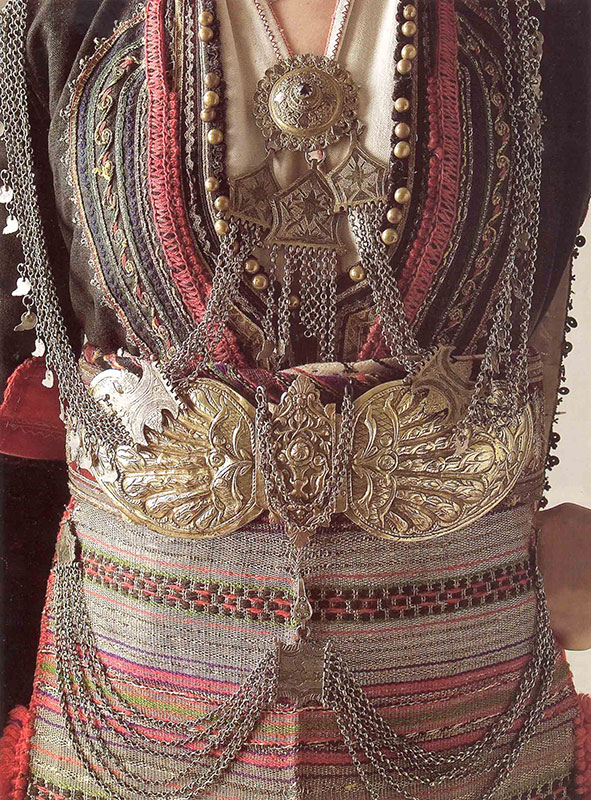
For more details about Costumes click here.
Publications
Κείμενο Κείμενο Κείμενο Κείμενο Κείμενο Κείμενο Κείμενο Κείμενο Κείμενο Κείμενο Κείμενο Κείμενο Κείμενο Κείμενο Κείμενο Κείμενο Κείμενο Κείμενο Κείμενο Κείμενο Κείμενο Κείμενο Κείμενο Κείμενο Κείμενο Κείμενο Κείμενο Κείμενο Κείμενο Κείμενο Κείμενο Κείμενο Κείμενο Κείμενο Κείμενο Κείμενο Κείμενο Κείμενο.
For more information about Publications click here.
